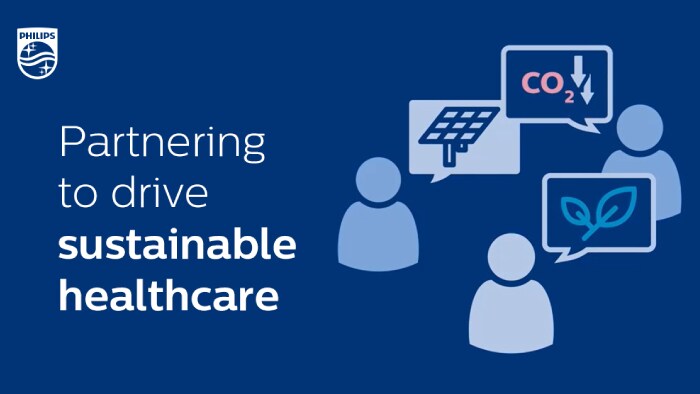Sep 14, 2021
Moving towards climate resilience and sustainability in healthcare
Recent reports, including that from the Intergovernmental Panel on Climate Change (IPCC) [1], have concluded that the global climate crisis is worsening, with scientists warning that we will not be able to limit global warming to even 2°C unless immediate changes are made. This means governments, industry leaders and organisations must all continue to work towards an effective and long-term sustainability plan to reduce their environmental impact and mitigate the climate crisis. The urgent demand for change is echoed by Australian healthcare leaders. Both the Australian Medical Association and Doctors for the Environment Australia (DEA) are advocating for the industry to reduce carbon emissions to net zero by 2040 [2]. With the Australian healthcare sector contributing approximately 7% to Australia’s national carbon emission footprint [3], we must collectively work together to drive efforts that reduce the sector’s environmental impact. The Climate and Health Alliance’s Framework for National Strategy on Climate, Health and Wellbeing outlines developing a sustainable and climate-resilient health sector as one of the most pressing areas of policy action [4]. Recent insights from the Philips Future Health Index 2021 found that 38% of Australian healthcare leaders say that implementing sustainable practices at their hospital or healthcare facility is a top priority in the next three years. So how can health technology partners like Philips support this transition to more sustainable practices within the healthcare sector? We’re proud to say that since 2020, Philips has become a carbon-neutral global organisation, with our Australian operations responsible for just six tonnes of carbon emissions annually, all of which are actively offset. First launched in 2016, the Healthy People Sustainable Planet strategy targets were reinforced in 2020 after achieving our ambitious goals, including successfully generating 70% of our global sales from green products and services, with 15% of sales coming from circular products and services. As part of our ongoing commitment to more sustainable industry models, we’re working with partners to drive holistic change within Australia’s healthcare ecosystem. This includes working with local healthcare providers and suppliers to extend the life of healthcare equipment and actively building pathways for equipment lifespans to be extended. This is part of the Philips global initiative, Closing the Loop, that sees us trade-in used medical equipment from customers to ensure that it is recycled, reused or ethically disposed of, promoting a circular economy. In healthcare, we’re always looking to promote win-wins, where we can improve clinical quality and progress towards value-based care, and simultaneously reduce negative impacts on the environment.
Our sustainability-first approach creates values alignment for healthcare leaders like Dr Zane Sherif, Founder of Mermaid Beach Radiology, who explains that: “Our mission at Mermaid Beach Radiology is to deliver superior imaging quality to achieve the highest standard of patient care, while ensuring that everything we do is carbon neutral. It was vital for us to work with a partner that not only allows us to achieve these standards, but also shares our values and commitment to environmental sustainability”.

While climate change is impacting healthcare, healthcare is hugely impacting climate change. Emissions from patients travelling to and from healthcare facilities contributes to the sector’s carbon footprint. For many years, our healthcare solutions have supported Heart of Australia’s mobile clinics to deliver point of care medical diagnosis and treatment to patients in regional communities in Queensland, reaching more Australians in need of specialist care. As of 2021, Heart of Australia has saved its patients travelling 2.4 million kilometres by removing the need to travel to a specialist. The distance saved equates to travelling around Australia 170 times, or the globe nearly 61 times, significantly reducing the environmental impact of treatments for remote patients. The COVID-19 pandemic has opened the door to reimaging healthcare delivery. Shifting routine care away from hospital settings with the adoption of telemedicine and virtual care models makes care more accessible and patient centered, with the added benefit of reducing our carbon footprint. Moving our solutions to the cloud can also support our customers in lowering their environmental impact. Cloud-based software saves on the materials needed for on-site enterprise hardware and servers, and studies have shown that 84% less power is used when customers use large, centralized cloud-based data centers instead of on-premises infrastructure. The largest category for emissions in healthcare is in the supply chain [5], where more than 70 per cent of emissions are embedded (known as Scope 3 emissions). To further ensure that our partners are working in environmentally responsible ways, Philips created the global Supplier Sustainability Declaration, which details our expectations and commitment to acting responsibly towards our planet. This not only helps us to meet our own sustainability goals by creating cleaner supply chains but responds to the goals more broadly outlined by global and regional associations. Our ongoing commitment to the adoption and implementation of new, environmentally conscious ways of working has given way to various grassroots initiatives by Philips employees. In Australia, this includes eliminating approximately 100 tons of carbon emissions by switching to a hybrid fleet, a project spearheaded by our Market Procurement Manager, Anthony Bartlett. We’ve put climate change and minimising environmental harm at the heart of everything we do at Philips. Our initiatives, along with global reports like the IPCC’s help us stay accountable, giving us the opportunity to reflect on the progress we have made, while looking to the future to ensure we are continuing to create positive changes that benefit patients, health systems and the environment around us. As an industry we have some large issues to be solved. We haven’t figured it out all yet, but what we do know is that we need to team up with our employees, partners, customers and suppliers in healthcare, to deliver sustainable value and a green future in healthcare. Sources: [1] https://www.ipcc.ch/report/ar6/wg1/ [3] https://www.thelancet.com/journals/lanplh/article/PIIS2542-5196%2817%2930180-8/fulltext [4] https://www.caha.org.au/national-strategy-climate-health-wellbeing [5] https://www.pwc.com.au/health/health-matters/net-zero-emissions-in-health.html
About Royal Philips
Royal Philips (NYSE: PHG, AEX: PHIA) is a leading health technology company focused on improving people's health and well-being, and enabling better outcomes across the health continuum – from healthy living and prevention, to diagnosis, treatment and home care. Philips leverages advanced technology and deep clinical and consumer insights to deliver integrated solutions. Headquartered in the Netherlands, the company is a leader in diagnostic imaging, image-guided therapy, patient monitoring and health informatics, as well as in consumer health and home care. Philips generated 2020 sales of EUR 19.5 billion and employs approximately 82,000 employees with sales and services in more than 100 countries. News about Philips can be found at www.philips.com/newscenter.


